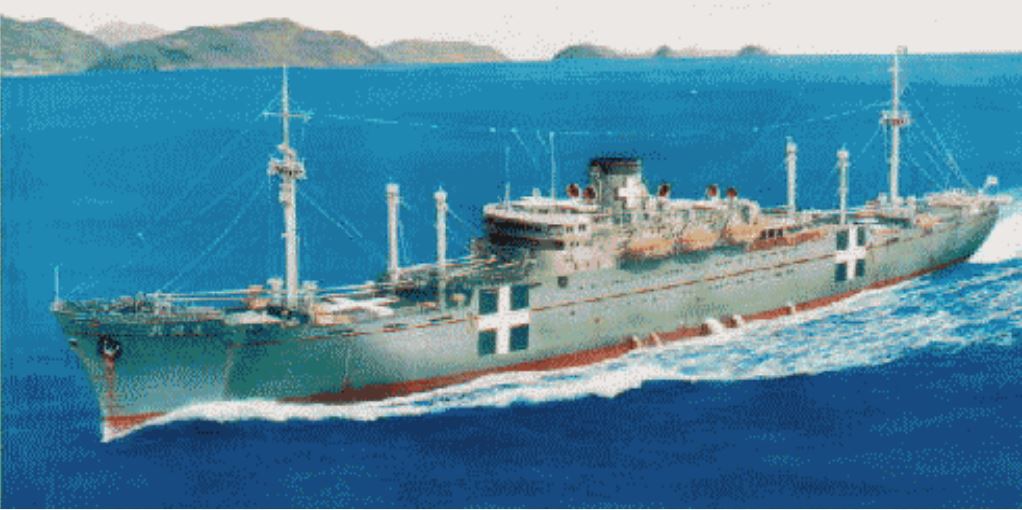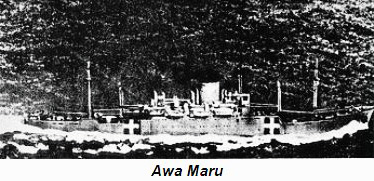MV Awa Maru
From Our Contribution
Remarks
Laid down on 10 Jul 1941 with tthe owners intending to use her on the Japan / Australia route. Built at the southern end of Kyushu island for Nippon Yusen, and completed in March 1943. Requisitioned on 10 Mar 1943 and refitted for auxiliary use by the Japanese Navy during WW2. In the brief time before she was sunk (contrary to rules of engagement as she was sailing as a hospital ship) in April 1945, she made several voyages between Japan and Singapore and Indo Chinese ports.
Carrying reinforcement troops to the Philippines in August 1944, she was torpedoed, but was able to be beached, and later towed to Manila and then Singapore where she was repaired before returning to duty in January 1945.
While a voyage corresponding with the voyage in Jack Thorpe's story "Bloody Lucky" is detailed in available records the ship must have undergone significant change from rough usage as he described it as rusted from one end to the other. If this was indeed the ship above, it returned to Japan as part of Convoy Hi-84.
In March 1945 the Awa Maru sailed from Singapore at night on 28 March 1945 for Japan, employed as a Red Cross relief ship purportedly carrying vital supplies to American and Allied prisoners of war (POWs) in Japanese custody. Japanese authorities had declared her sailing and the route she was to take. On the night of 1 Apr 1945, she was intercepted in the Taiwan Strait by the submarine USS Queenfish which mistook her for a destroyer and sank her. Only 1 of the 2,004 crew and passengers that she carried survived. Seventeen hundred merchant seamen and 80 first-class passengers, all survivors of ship sinkings, were aboard, being transported from Singapore to Japan. The submarine Captain faced an immediate General Court Martial and was found guilty. The US offered the Japanese a relacement ship, but in the end no compensation was made.

